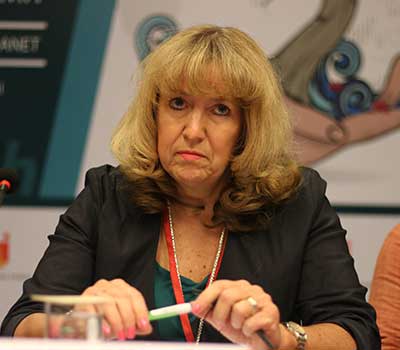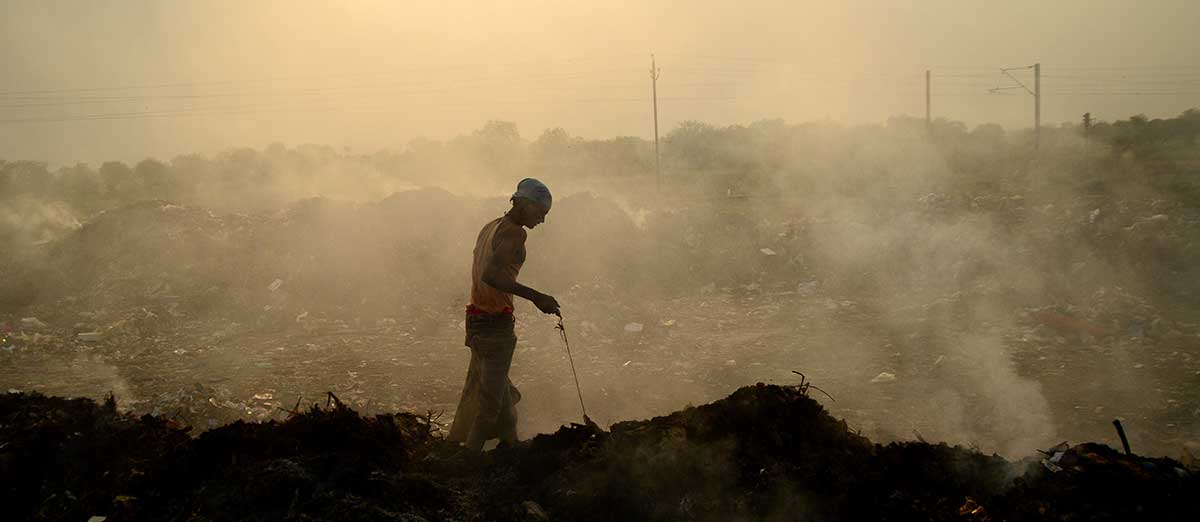
Plastic Plastic Everywhere, Not The Way To Live
 You never know which country’s plastic is landing on your beaches – Astrid Schomaker, speaking on the Resource Efficient Management of Plastic Waste
You never know which country’s plastic is landing on your beaches – Astrid Schomaker, speaking on the Resource Efficient Management of Plastic Waste
A blanket of plastic wreckage spanning 965,000 sq. miles, floating in the ocean and an emaciated whale with 30 polythene bags in its stomach dying off in Norway-these thoughts weighed heavy on the minds of the distinguished panel at the Resource Efficient Management of Plastic thematic track session at WSDS 2018.
The answer to the question whether plastic can be done away with is “not at the moment”. Elaborating on this, Mr Astrid Schomaker said, "We want a new plastics economy and let me stress that we are not against the plastic industry; it is an important industry. We don’t want to kill this industry, we want to make it more sustainable and more competitive." Interestingly, this thought was echoed by all present at the session. The uses of plastic are just as many as its disadvantages. Despite all the advancement in technologies, the biggest way to handle plastic management is by cooperation amongst all the stakeholders. While EPR suggests decreasing the impact of the material by holding its producers responsible, it is paramount for the informal sector and the consumers to come together in this war against plastic.
The Importance of Informal Sector
India is also counting in the efforts of the informal sector, which largely includes the waste pickers across country. Adding to the debate, Mr Siddharth Hande said, “The informal sector has a very important role to play when you think of a circular economy. They are lot more cheaper and efficient in recovering material.” In fact, in Chennai, 70% of the waste is actually from the domestic sector and 33% of this waste is procured by waste pickers, he added.
“India is not in the top 10 when it comes to leaking plastic into the oceans. And it is because 3 million of our waste pickers are there to prevent this,” said Mr Amit Saha. Mr Ulhas Parlikar added that if we learn to segregate our waste, we will be able to solve a big chunk of our problem. “We need to further strengthen and train our informal sector to play a stronger role in helping with the segregation of the waste at the collection level,” he said.
 India’s informal sector plays a big role in segregation and recycling
India’s informal sector plays a big role in segregation and recycling
What about the developed world?
Single use plastic makes 50% of the plastic waste in European beaches and in cleaning up its act, Europe has launched a plastic strategy that will ensure that all the packaging within Europe will be reusable or recyclable by 2030.
Recycling comes with other advantages
“Plastic is not biodegradable but 100% recyclable,” remarked Mr Amit Saha. And this comes with the dual benefits of creating employment, as Dr Suneel Pandey added that dumping of 10,000 tonnes of waste in landfills provides jobs to six people whereas recycling 10,000 tonnes of waste creates six times more jobs.
A Note for Consumers
While the policy makers and the private sector may come up with solutions to reduce the production of plastic, the panelists agreed that a huge part of the onus lies on the shoulders of the common man. By doing away with the culture of one time use, consumers need to adopt a behaviour that will push us towards reusing and recycling at our own end.